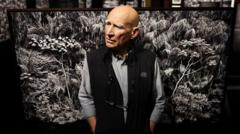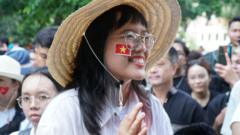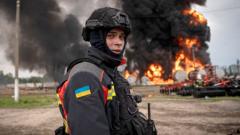Tay Ninh, 1965. In a landscape irrevocably altered by conflict, the Vietnam War represents the first instance of a "living room war," where the horrors of battle were broadcast globally via television and photography. Photographers operated at the front lines, capturing visceral moments that showcased both heroism and human suffering. Their lens magnified the visceral reality of war, playing a central role in altering public sentiment and influencing political discourse regarding the conflict.
As the war concludes its 50-year remembrance, one must ponder: what enduring insights do these images offer us today? Photography from this tumultuous period transformed perceptions, unveiling the stark truths of war, both for the people of Vietnam and Americans observing from afar.
The war officially ended on April 30, 1975, yet the emotional scars remain. A poignant reflection of this can be found in Tim O’Brien’s "The Things They Carried," where he imparts that survival does not guarantee a resolution of happiness. The iconic photographs from this era showcase the brutal realities of jungle warfare, revealing the complexity of human nature amid pandemonium.
The courageous photojournalists of the time—each with unique perspectives—contributed significantly to this narrative. Among them was Dickey Chapelle, a trailblazer as the first female photojournalist to perish in Vietnam, whose Midwestern roots fueled her anti-Communist sentiments. Tim Page brought a distinct irreverence as a British photographer embodying the spirit of the era, while Henri Huet, with his dual Vietnamese-French heritage, infused his work with warmth and humor.
Together, these brave individuals, along with many others, not only documented the war but also irrevocably altered how the world—particularly America—viewed Vietnam, its soldiers, and the nature of war itself. Their legacy continues to provoke thought and reflection, reminding us of the intricate relationships between image, memory, and identity in times of conflict.






















